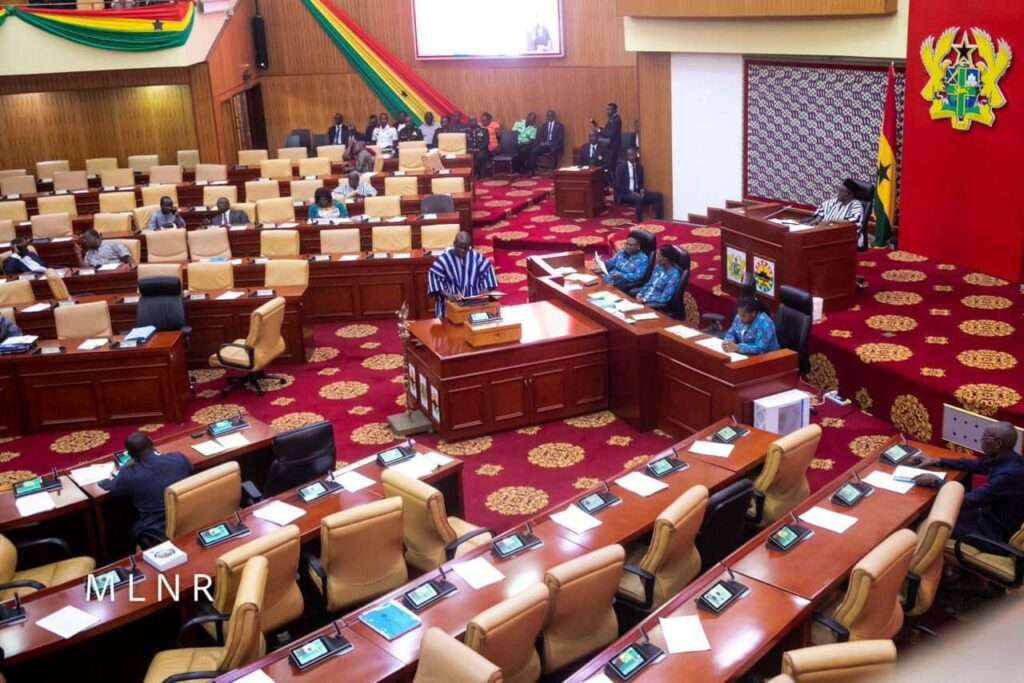The Director of Conflict Resolution for the National Democratic Congress (NDC), Abraham Amaliba, has expressed strong reservations about a recent Supreme Court ruling concerning vacant seats in Parliament.
According to Amaliba, the ruling undermines constitutional provisions and will not endure scrutiny over time. In an interview following the decision, Amaliba, a legal practitioner, described the Supreme Court’s verdict as lacking legal and constitutional soundness.
He argued that the judgment effectively nullifies Article 97 of the Constitution, which deals with situations under which a Member of Parliament (MP) is deemed to have vacated their seat, including instances of crossing the floor.
“You don’t just jump into the middle and then start saying you want to interpret, for what reason?” Amaliba questioned, further noting that the judgment sets a precedent that undermines the practical application of Article 97.
“When will we ever say per Article 97, a Member of Parliament has crossed carpet? They have made it useless,” he emphasized.
His concerns align with the dissenting opinion of Justice Amadu Tanko, one of the two justices who opposed the majority decision. Justice Tanko described the ruling as an “aberration” and expressed hope that it would eventually be overturned.
Justice Amadu Tanko’s dissent underscores the broader legal implications of the decision. He argued that the ruling contradicts established judicial precedents and infringes on the constitutional prerogatives of the High Court, which traditionally handles matters concerning parliamentary vacancies.
Implications for Parliamentary Accountability

The ruling has sparked debate about its long-term implications for parliamentary accountability and discipline. Critics argue that it weakens mechanisms to address potential conflicts of loyalty or partisanship among MPs.
Amaliba questioned the rationale behind such a restrictive interpretation. He suggested that the judgment opens the door for MPs to act in ways that contradict their party’s directives or the interests of their constituents without immediate consequences.
“This judgment will not stand the test of time,” Amaliba reiterated, predicting that future legal challenges could lead to a reversal or refinement of the Court’s position.
The Supreme Court’s majority decision revolved around whether MPs who file to contest as independent candidates for future elections can be deemed to have vacated their seats in the current Parliament.
In a 5-2 decision, the Court ruled that a seat in Parliament can only be vacated if an MP officially crosses the floor to join another political party or becomes an Independent Candidate within the same Parliament in which they are serving.
The ruling invalidated Speaker Alban Bagbin’s declaration that several MPs had vacated their seats for filing to contest as independent candidates in the 2024 elections.
The Court determined that merely filing for future elections does not constitute vacating a seat under the Constitution.
The Supreme Court’s decision has drawn mixed reactions from legal experts, politicians, and the public. Supporters of the ruling argue that it reinforces the independence of MPs and prevents premature declarations of seat vacancies based on speculative future actions.
However, opponents like Amaliba and Justice Tanko see it as a misinterpretation of constitutional provisions that undermines parliamentary discipline and accountability.
The controversy also reflects broader tensions in Ghana’s legal and political landscape, as institutions grapple with balancing constitutional interpretation with practical governance considerations.
READ ALSO: GSE and Fintechs Join Forces to Develop Investment Solutions for Every Ghanaian





















